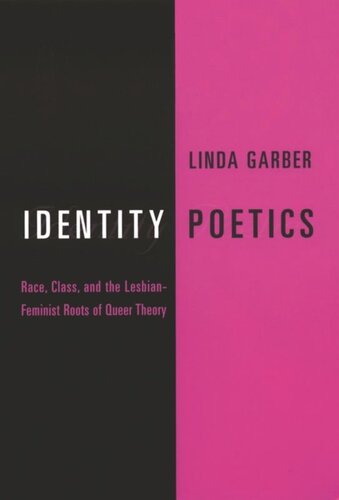

Most ebook files are in PDF format, so you can easily read them using various software such as Foxit Reader or directly on the Google Chrome browser.
Some ebook files are released by publishers in other formats such as .awz, .mobi, .epub, .fb2, etc. You may need to install specific software to read these formats on mobile/PC, such as Calibre.
Please read the tutorial at this link: https://ebookbell.com/faq
We offer FREE conversion to the popular formats you request; however, this may take some time. Therefore, right after payment, please email us, and we will try to provide the service as quickly as possible.
For some exceptional file formats or broken links (if any), please refrain from opening any disputes. Instead, email us first, and we will try to assist within a maximum of 6 hours.
EbookBell Team

4.4
12 reviews"Queer theory," asserts Garber, "alternately buries and vilifies lesbian feminism, missing its valuable insights and ignoring its rich contributions." Rejecting the either/or choice between lesbianism and queer theory, this book favors an inclusive approach that defies current factionalism. In an eloquent challenge to the privileging of queer theory in the academy, Garber calls for recognition of the historical—and intellectually significant—role of lesbian poets as theorists of lesbian identity and activism.
"Queer theory," asserts Linda Garber, "alternately buries and vilifies lesbian feminism, missing its valuable insights and ignoring its rich contributions." Rejecting the either/or choice between lesbianism and queer theory, she favors an inclusive approach that defies current factionalism. In an eloquent challenge to the privileging of queer theory in the academy, Garber calls for recognition of the historical—and intellectually significant—role of lesbian poets as theorists of lesbian identity and activism.
The connections, Garber shows, are most clearly seen when looking at the pivotal work of working-class lesbians/lesbians of color whose articulations of multiple, simultaneous identity positions and activist politics both belong to lesbian feminism and presage queer theory. Identity Poetics includes a critical overview of recent historical writing about the women's and lesbian-feminist movements of the 1970s; discussions of the works of Judy Grahn, Pat Parker, Audre Lorde, Adrienne Rich, and Gloria Anzaldúa; and, finally, a chapter on the rise and hegemony of queer theory within lesbigay studies.